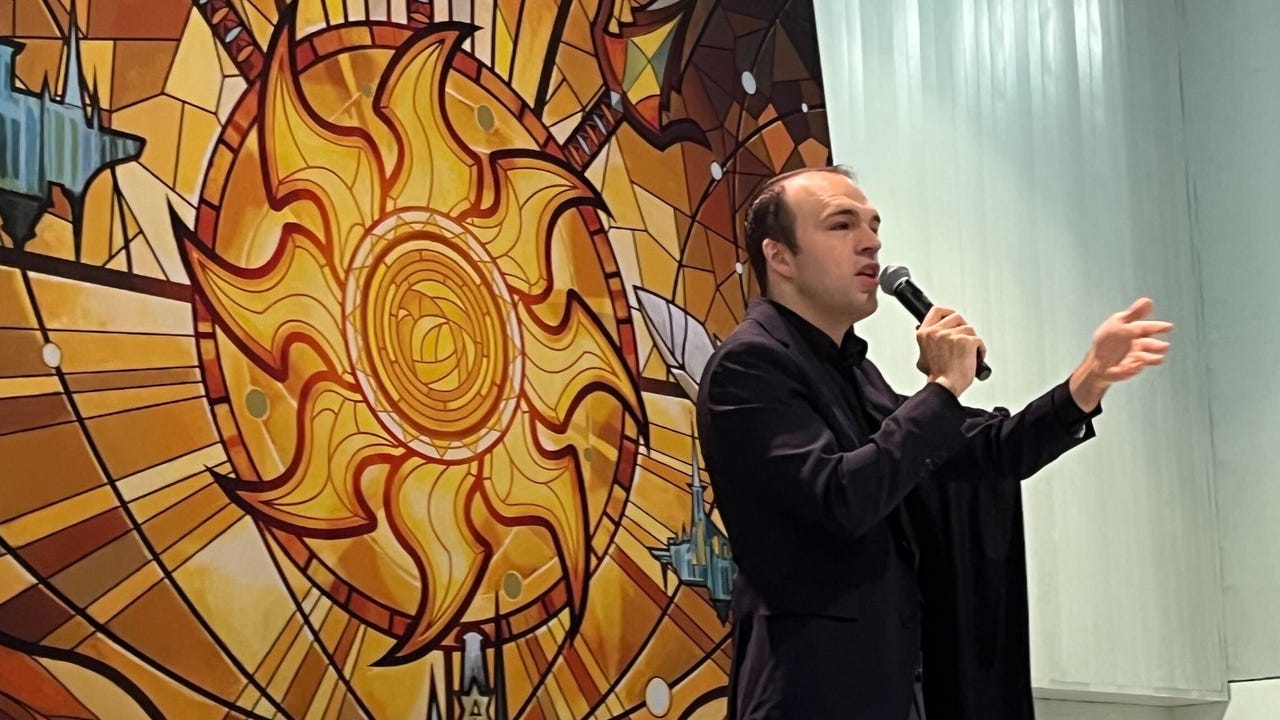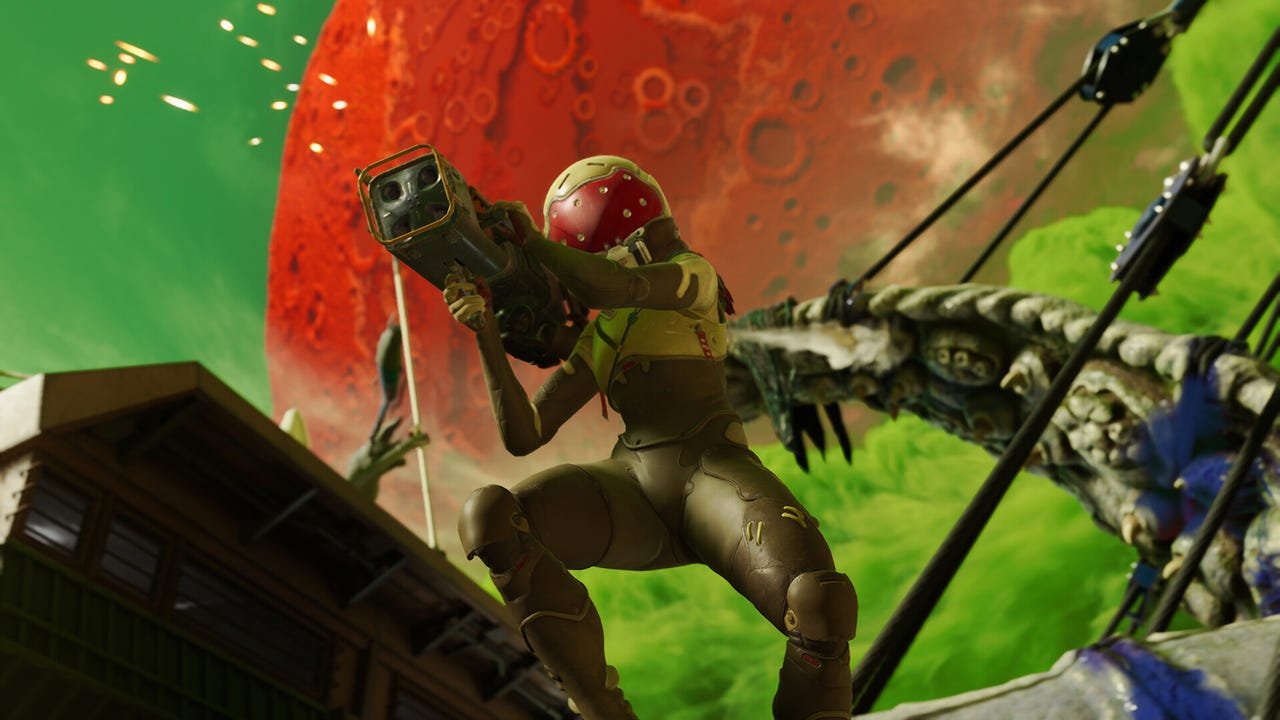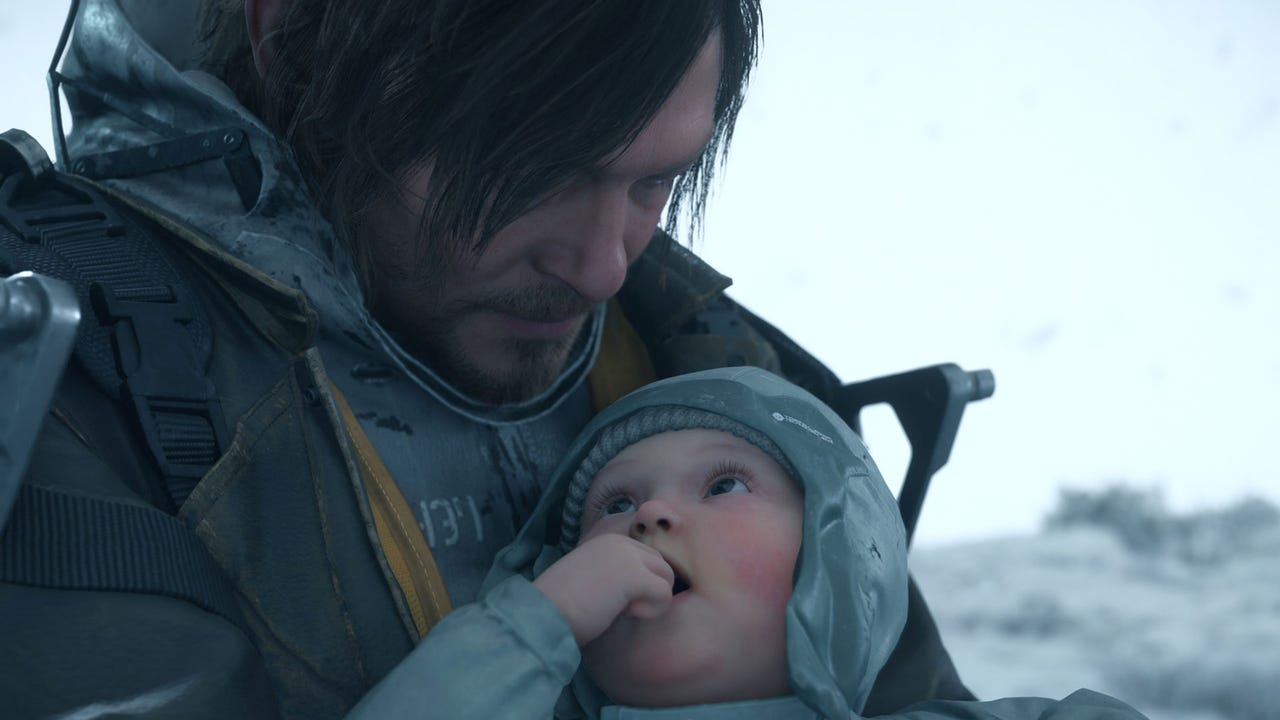Free-to-play hybrid action RPG Duet Night Abyss recently revealed in a special program that it will launch globally on PC and mobile on October 28 and that it’s making significant changes to its core monetization system.
For the uninitiated, Duet Night Abyss is developed by Pan Studio, a studio under Hero Games. It was first announced in 2023, and the story is told through a dual narrative from the perspectives of two protagonists. Pre-registration is open now, and you can sign up here. You can also get more info about the game’s world, characters, and weapons on the official website.
With the latest update, the dev team announced some major changes designed to make the game more player friendly. All weapons and characters are now free to acquire, there are no banners to pull for and hope for luck. Weapons no longer have star ratings, and all can be forged or acquired for free through grinding. And all stamina for commissions has been removed, so there’s no time limitation on grinding.
To get some deeper insight into these changes, as well as info about the game and its development process, we got together with two key figures in its development — Hero Games CEO Daniel Wu and game producer Deca Bear — to chat about it.
How would you describe Duet Night Abyss? Where do things stand with the game as of now?
Deca Bear: Duet Night Abyss is a thrilling hybrid action RPG, featuring a dual narrative. Our goal is to provide players with pure, enjoyable gameplay in a relaxing, stress-free environment.
Globally, we have conducted one Technical Test and two Closed Beta Tests. Based on player feedback and data performance, we have continuously refined the game. Today, we are excited to announce that the global launch is scheduled for October 28, 2025.
For this release, we have made significant adjustments to the stamina system and monetization model. In the release version, all characters and weapons will be fully accessible for free. Meanwhile, we are actively working on future updates and will continue to deliver high-quality content to players in the coming versions.
The anime-style game market has been expanding in recent years. What inspired you to support this project, and what do you see for the future of these types of games?
Daniel Wu: The team behind Duet Night Abyss is a perfect fit for Hero Games — they carry that bold, slightly rebellious creative spirit, with a remarkable artistic vision. This reflects a deep passion for, and understanding of, the ACGN (animation, comics, and games) culture, enabling them to craft content that truly resonates with fans of this genre.
For content-driven ACGN titles, the core lies in the “content” itself. I believe that truly exceptional content — whether in ACGN or any other form — will always find its moment to shine in this era.
Before Duet Night Abyss was greenlit, we had already built extensive experience through investments in leading studios. Kuro Games, for example, had released the globally acclaimed Punishing: Gray Raven and was, at the same time, preparing the development of Wuthering Waves. Meanwhile, Game Science’s Black Myth: Wukong — another project we backed — was already generating tremendous anticipation among players worldwide.
The strong, positive feedback from these investments inspired a new ambition: to create a project that could truly be called Hero Games’ own. That ambition became the starting point for Duet Night Abyss.
When was the concept of this game first brought to you? Has it changed or evolved since then?
Deca Bear: Duet Night Abyss is inspired by the deep understanding of anime-inspired culture and high-quality action games. As both a producer and a passionate gamer, I have observed the growing demand for anime-inspired game titles that combine engaging narratives with thrilling combat experiences. I believe this niche market will continue to expand, and that outstanding content, innovative gameplay, and player-friendly systems will become key factors in a game’s success. It was with these ideas in mind that we created Duet Night Abyss.
The core concept and vision of the game have remained consistent throughout development. Through continuous refinement and effort, we aim to convey our creative philosophy and passion to players worldwide.
The story is told from the perspectives of two protagonists. How did the idea of this dual narrative originate, and what benefits does this approach provide?
Deca Bear: The story in Duet Night Abyss is complex, and experiencing it from a single perspective only offers a limited view. By introducing an additional viewpoint, we add another dimension, allowing players to perceive the world in a more nuanced and multidimensional way. This was the very reason we chose the dual narrative in Duet Night Abyss.
With a dual narrative, players can experience the story through the eyes of different protagonists. Each character has their own storylines, roles, and connections, allowing players to experience two perspectives within a single game. At a certain point, when these storylines intersect, players will encounter unexpected and exciting surprises.
In the upcoming version, we have also made the protagonists playable characters, aiming to give players a stronger sense of immersion as they experience the story.
Could you give us an overview of the game’s hybrid action RPG combat system? What makes Duet Night Abyss unique in the genre?
Deca Bear: In addition to basic movements like jumping, we have added Helix Leap, allowing characters to traverse long distances at high speed. Each character can equip both melee and ranged weapons, seamlessly switching between close- and long-ranged attacks in battles.
Regarding skills, we opted for a short cooldown system — and in some cases, even no cooldown at all — so that most characters can continuously unleash skills as long as they have sufficient Sanity.
Additionally, both characters and weapons can be equipped with Demon Wedges, which not only provide stat boosts but also introduce changes to mechanics and attack patterns, offering a wide range of options for flexible and customizable builds.
During commissions, players can select two characters as AI companions to assist in battles, significantly reducing gameplay pressure.
Some of the most common issues players have with gacha games are pay-to-win mechanics and excessive grinding. What does Duet Night Abyss do to address these problems?
Deca Bear: Drawing on years of experience in art and design for anime-style games, I’ve long dreamed of creating an action RPG with a distinctive anime aesthetic. At the same time, I’m aware that the current anime-style game market often has a reputation for grind-heavy and pay-to-win mechanics. That’s why we set out to develop a truly player-friendly free-to-play (F2P) RPG, where players can enjoy the game freely at their own pace.
With this goal in mind, balancing monetization and player experience has been a core focus for our development team. In the latest updates to Duet Night Abyss, we’ve made major changes on the monetization system: character banners and star ratings for both characters and weapons have been removed, and all characters and weapons are now completely free to obtain.
From the perspective of reducing player burden, the Demon Wedge system provides fixed stat boosts and can be applied universally within its category once obtained. In commissions, the Sigil System allows players to summon AI companions to assist in combat, improving efficiency and reducing grind. Additionally, the stamina system for commissions has been completely removed. Our goal is to ease player’s burdens while maintaining a player-friendly experience for F2P users.
Those changes are pretty significant. What went into that decision? As producer, did you have any concerns about that choice?
Deca Bear: As mentioned, our core vision for Duet Night Abyss is to build a high-quality, long-term, and truly player-friendly game ecosystem for users around the world. Monetization has to serve the gameplay experience, not compromise the fun.
The choice to remove character banners and weapon star ratings was driven by extensive player feedback and our team’s commitment to creating a fairer, more sustainable progression system.
While this may mean letting go of certain short-term monetization opportunities, I believe that, over time, it will deepen player engagement and trust, paving the way for a healthier and more enduring business model.
These changes mean giving up some common monetization methods. As the CEO, what were your feelings on that decision?
Daniel Wu: On this matter, I share the same vision as our producer. As a gamer myself, I truly value player-friendly design, which is why we place such importance on player feedback. The direction of our adjustments is focused on meeting player expectations and delivering an experience that genuinely resonates with them.
From a company perspective, while this may mean forgoing certain quick monetization opportunities in the short term, I believe that in the long run, it will help strengthen player engagement and reputation — ultimately building a healthier, more sustainable business model.
Throughout the process of development, how important has player feedback been? What areas of the game have been most popular, and what areas do you still need to improve based on the feedback you’ve gotten?
Deca Bear: We’ve always placed the highest importance on player feedback. Some players have previously expressed concerns about our monetization system. For a live service game, we believe a business model built on player trust is essential. That’s why, in this update, we made those adjustments — aiming to improve player experience while ensuring the game’s long-term sustainability.
Naturally, there were discussions and concerns along the way — whether these changes might impact our revenue model or affect core player engagement. But we’ve remained committed to the belief that a healthy ecosystem and strong player goodwill are worth far more than short-term returns.
We’re fortunate to have the full support of our leadership — especially our CEO, Daniel — as well as our publishing team. We all share the goal of creating a game that players genuinely want to stay with and can form lasting connections around — this is where our efforts invested most. We’ll monitor the new designs and refine them to ensure they deliver.
You’ve now announced the upcoming global launch, so what’s next on the roadmap? Do you have a set cadence for the release of new information going forward?
Deca Bear: The next step, of course, is preparing for the global launch, which is a critical moment for our entire team. We need to ensure that the upcoming version is stable and delivers a smooth, enjoyable experience, and we’ll continue to make optimizations and adjustments leading up to the launch.
All the content for this version is currently in development. The special program already showcased some of the new visuals, but this is just a small part of what’s coming. There’s still a lot more new content, including trailers and characters, which we’ll be sharing on Duet Night Abyss’ social channels — stay tuned!
What are you most looking forward to hearing from players about once they get their hands on the game after launch?
Deca Bear: For us, every piece of feedback from players is extremely valuable — whether it’s about the story, combat, characters, or visuals. We welcome all feedback and will continuously refine and improve the game based on it.
We know about the PC and mobile versions of the game. Are there plans to bring it to other platforms?
Deca Bear: We are working to make the game fully compatible with controllers, and the previous CBT included an initial trial. Apart from this, we also aim to expand the game to more platforms, giving players more ways to play.
What does success for Duet Night Abyss look like to you? What is your goal for the game, and how do you expect it to grow in the future?
Daniel Wu: From a business perspective, return on investment may be the most straightforward measure of a game’s success. However, for me, chasing short-term gains is neither the core goal nor the main focus. I have always believed that a product’s true success should go beyond purely commercial metrics. What we value more is the team’s continuous growth and capability accumulation throughout the process, technological iteration and innovation breakthroughs, the long-term health of the product’s ecosystem, and building deep, meaningful interactions with players.
As long as we stay aligned with the right overarching direction and keep improving along these dimensions, the likelihood of achieving success naturally increases.
Is there anything else you’d like to say to players who are interested in Duet Night Abyss?
Deca Bear: We sincerely thank all players for their continued attention and support. With the global launch of Duet Night Abyss just around the corner, we hope players give it a try. If any gameplay issues are encountered, please let us know — we’ll keep refining the game and developing more fun and engaging content to deliver the best possible experience for everyone.



Leave a Comment